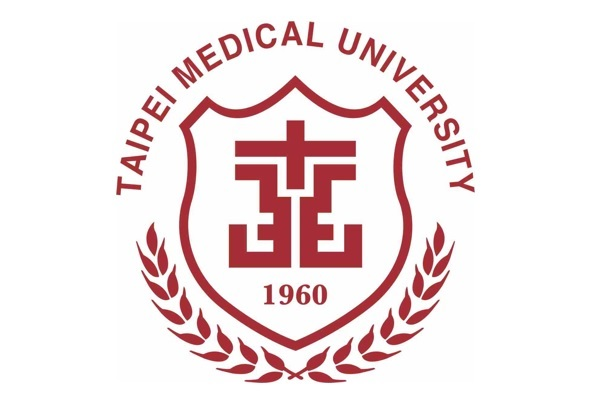I am an Assistant Professor at the Department of Medical Biotechnology and Laboratory Science, with a PhD from the Institute of Life Sciences, National Defense Medical Center, where I conducted my research at Academia Sinica. My expertise spans genetics, evolutionary biology, CRISPR genome editing, next-generation sequencing (NGS), and QTL mapping. My research focuses on yeast models, mitochondrial biology, and CRISPR gene editing, with postdoctoral experience from Harvard Medical School and Lehigh University. I explore genetic interactions and the evolutionary adaptation of mitonuclear genomes to advance precision medicine. I am committed to building collaborations and mentoring future scientists.
My lab focuses on investigating mitonuclear interactions using yeast models to uncover insights into mitochondrial disorders and genetic regulation. We employ advanced techniques such as CRISPR genome editing, cytoduction, NGS, QTL mapping, and experimental evolution. Additionally, we are developing a novel CRISPR-based technique that allows for multiple genome edits using continuous rounds of cytoduction—a process enabling cell fusion without nuclear fusion. With each edit, we introduce barcodes, facilitating easy tracking of mutants in high-throughput phenotyping experiments. Our interdisciplinary research bridges fundamental biology with translational applications, contributing to precision medicine and fostering biotechnology innovation.
My research centers on the intersection of genetics, mitochondrial biology, and genome editing, with a focus on:
Mitonuclear Interactions: Investigating the complex interactions between nuclear and mitochondrial genomes, particularly in yeast models. I explore how these interactions impact cellular function, mitochondrial disorders, and evolutionary adaptation.
Mitochondrial Dysfunction and Evolutionary Adaptation: Studying how mitochondrial dysfunctions arise and the mechanisms by which cells resolve or adapt to these defects through experimental evolution. This includes systematic mapping of mitonuclear genetic interactions to understand their role in cellular health and disease.
CRISPR Genome Editing: Developing novel CRISPR-based genome editing technologies. My lab is pioneering a technique that enables multiple genetic edits using continuous rounds of cytoduction—a process allowing cell fusion without nuclear fusion, introducing barcodes with every edit to track mutants in high-throughput phenotyping.
Yeast as a Model for Human Health: Using yeast as a model organism to gain insights into human mitochondrial disorders and broader biological processes, with the goal of translating findings into precision medicine applications.
High-Throughput Techniques and NGS: Employing high-throughput technologies, including next-generation sequencing (NGS) and QTL mapping, to systematically analyze genetic variations and interactions that contribute to cellular function and evolution.
These topics aim to bridge fundamental biological research with applications in precision medicine, enhancing our understanding of mitochondrial biology and genetic regulation.
Postdoctoral Research Abroad Program Fellowship: Sponsored by the Ministry of Science and Technology, awarded as Taiwan’s top fellowship grant for overseas postdoctoral research (2019).
Dr. Chien-Tien Hsu’s Award: 1st place at the 25th Symposium on Recent Advances in Cellular and Molecular Biology (2017).
Research Poster Award: 15th National Defense Medical Center Graduate Institute of Life Sciences Student Competition (2015).
Academic Poster Competition Award: Institute of Cellular and Organismic Biology – Chrestomathy (2014).
Research Poster Award: 14th National Defense Medical Center Graduate Institute of Life Sciences Student Competition (2013)
2017 PhD in Life Sciences, National Defense Medical Center, Taiwan. Lab of Jun-Yi Leu, Institute of Molecular Biology, Academia Sinica, Taiwan
2009 M.S. in Biochemistry and Molecular Biology, Lab of Chin-Hsiang Chien, National Yang Ming University, Taiwan.
2002 B.S. in Medical Biotechnology and Laboratory Science, Chang Gung University, Taiwan
2 Vacancies
Job Description
Perform molecular cloning, manage yeast-based experiments, and assist in next-generation sequencing (NGS) workflows.
Preferred Intern Education Level
Undergraduate students (sophomore level or higher) in biology, biochemistry, or a related field
Skill sets or Qualities
Basic lab skills (e.g., pipetting, preparing media)
Willingness to learn molecular biology techniques like PCR and cloning
Attention to detail and ability to follow instructions
2 Vacancies
Job Description
Project strategy, troubleshooting, and manuscript preparation
Preferred Intern Education Level
Fresh MS or PhD students in molecular biology, genetics, or bioinformatics
Skill sets or Qualities
Basic lab skills
Proficiency in bioinformatics tools (Python, R, etc.) and NGS workflows
Analytical and problem-solving skills
